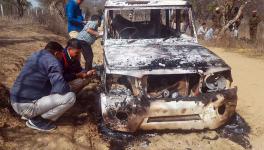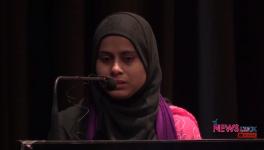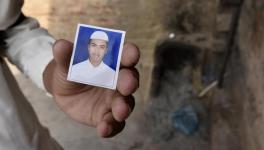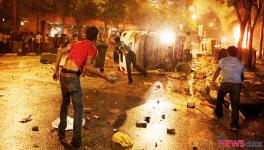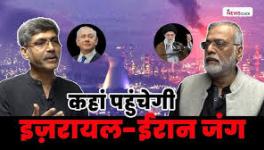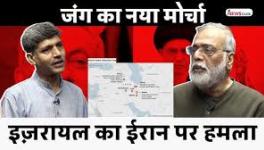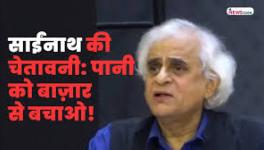Faridabad lynching: Is Haryana Government’s Senior Law Officer ‘Helping Junaid’s Murder Accused’?
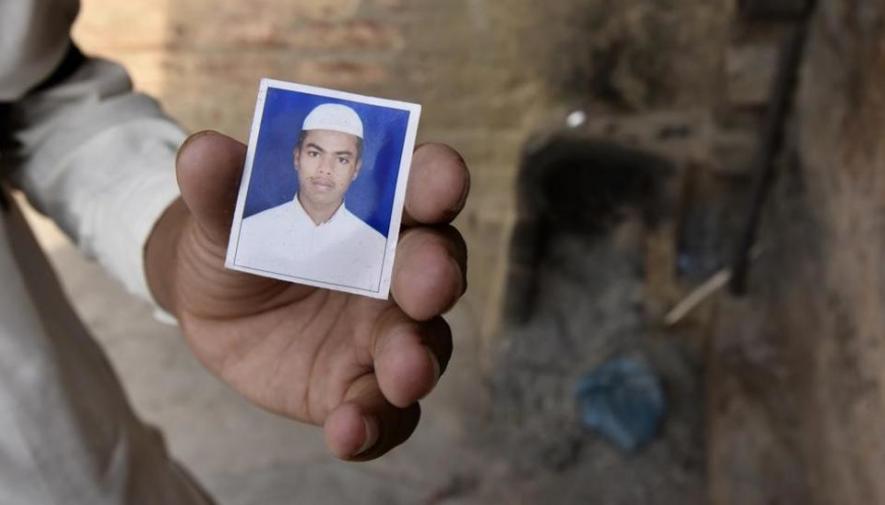
Legal experts are not surprised with the report that says that the Haryana government is allegedly providing impunity to the alleged lynchers of Junaid Khan, who was brutally assaulted along with four others and then stabbed to death in a local train earlier in June this year. They demanded that the courts should appoint special public prosecutors chosen by the victims’ family in all cases of lynching that took place in the country in the past few years.
Additional District and Sessions Judge Faridabad, YS Rathore, who heard the murder case of the 15-year-old boy, sought action against a senior government lawyer for allegedly helping the accused. “During the examination of witnesses, it has been noticed that one Mr Naveen Kaushik, who is additional advocate general, Haryana, is also assisting the defence counsel representing accused Naresh (prime accused who allegedly stabbed Junaid to death). He was assisting the defence counsel yesterday also at the time of examination of Javed Khan (prime witness number two),” the judge said in an interim order on October 25.
On being told that he cannot appear in the court being a law officer of the State of Haryana along with defence counsel, Kaushik stated that “he has come only to watch the court proceedings”. However, according to the court, he was “assisting the defence counsel at the time of cross-examination of the prosecution witnesses and suggesting questions to be put to the witnesses”.
“This act of Mr Naveen Kaushik, additional advocate general, Haryana, amounts to professional misconduct and is against legal ethics and highly unbecoming of an advocate, particularly because he is a Law Officer in the office of the Advocate General, Haryana,” said the court.
Adding that it is a sensitive case in which “according to prosecution case, one boy of minority community was killed during the quarrel in a train over sharing of seats with passengers of majority community after the deceased was allegedly abused on religious lines”, the judge said in case Kaushik appears along with the defence counsel, “it will send a wrong signal and will also create a feeling of insecurity amongst the victim party and will adversely affect the aim of the court to conduct free and fair trial”.
Judge Rathore added, “Accordingly, a letter has been written to Hon’ble Punjab & Haryana High Court, Chandigarh for taking up the matter with the State Government, Office of Advocate General, Haryana and Bar Council of Punjab & Haryana, Chandigarh for taking necessary action against him.”
Though additional advocate generals are not debarred from private practice, they cannot assist the defence counsel in cases where the state government is a party. In Junaid’s case (‘State of Haryana Vs Naresh Kumar’), the State of Haryana is a party.
Junaid, his brother and two cousins had been attacked on Delhi-Mathura EMU train in June by a mob, which also hurled communal slurs against them. The 15-year-old later died of stabbing injuries. The trial court recently framed charges against Naresh Kumar among others.
Defending himself while talking to The Indian Express, Kaushik said “It is a wrong impression that he was assisting the defence counsel. I was giving him the provisions of law regarding the Hindi language. It was relevant to court proceedings since the evidence was being recorded and there is no provision for translation of evidence in English. It can only be translated when both the parties agree to it.”
He further said, “I have not appeared in the case and have no connection with it. I was there only because I am the organising secretary of the Bharatiya Bhasha Abhiyan in the north region and the counsel appearing for one of the accused is known to me. He had requested the court that evidence be recorded in Hindi as is provided in the Criminal Procedure Code (CrPC). On October 25, he asked me if I could provide him with the relevant provision of law and so I went there to give it to him.”
Kaushik said the Bhasha Abhiyan works for the cause of getting courts to function in Indian languages.
According to the day’s order, an application was moved that day for recording evidence of witnesses in Hindi by Advocate Vishal Jolly. The lawyer was informed that “evidence is being recorded in Hindi and separately being typed in English on the computer and same practice is adopted in all the Sessions trials”.
According to the victim’s lawyer Nibrash Ahmed, the Additional Advocate General was also seen at the hearing on the same day that Junaid’s father Jalaluddin filed a petition in the Punjab & Haryana High Court seeking transfer of the probe from the Haryana Police to an independent agency such as the Central Bureau of Investigation (CBI).
“He (Kaushik) was also present in the court during a hearing on our writ petition on the same day in the Punjab & Haryana High Court seeking the transfer of the case from the Haryana Police to an independent agency such as the Central Bureau of Investigation (CBI),” he told NewsClick.
Reacting to the development, senior Supreme Court lawyer Colin Gonsalves, who is also the founder of the Human Rights Law Network, alleged, “In all the 30 cases of lynching that we have studied recently, the police are siding with the accused. And there is a very serious attempt by the state to sabotage its own prosecution.”
He demanded that in all these cases, the court should appoint a special public prosecutor as chosen by the victims.
Senior Advocate Nitya Ramakrishnan said she has not read the news report, but added that “generally speaking, the killing of Junaid was one of the most brutal and horrible incidents in this country. In a case of this nature, if it appears to the court that instead of prosecuting, a Law Officer of the state is aiding the accused in any manner, it is one of the worst things that can happen and it is right for the court to be proactive about it”.
Earlier, the victim’s family had said that pressure is allegedly being mounted on them by sympathisers of the accused, including influential locals, to withdraw cases and reach a compromise to “maintain communal harmony”.
Earlier this month, rejecting the bail plea of one of the main accused, Rameshwar Dass, the High Court had said, “there is every likelihood of prosecution witnesses being put in jeopardy”.
Technically, the victim’s family cannot withdraw the cases as the state is pursuing the matter against the accused. But attempts can be made to persuade the prime witness - who are Junaid's brothers Hashim and Shakir and two cousins Moin, Mousim - to turn hostile so that the case can be subverted.
The Haryana Railway Police has already withdrawn charges of rioting, unlawful assembly and common intention against four of the six accused in the charge sheet after arresting Naresh Kumar, who had allegedly stabbed Junaid when the train reached Ballabgarh railway station, from Dhule in Maharashtra. Two other accused in the case still remain unidentified.
The police took the plea that the charges were dropped based on the disclosure reports of the accused. The police filed a charge sheet on August 23 omitting the charges of rioting, unlawful assembly and common intention.
Junaid and his brother Hashim, along with their two cousins, were returning home to Khandawali village in Faridabad on a local train after shopping for Eid at Sadar Bazar in Delhi when they got into an altercation with a few passengers. The altercation turned violent when a group of 10-20 men stabbed Junaid to death and injured his brother.
The Haryana Railway Police investigated the case and filed a charge sheet.
Ramesh, a resident of Jodhpur village in Palwal district, was arrested on June 23 – a day after the incident. The police claimed that he was the prime accused in the case. He was granted bail on August 18.
Prime accused Naresh (27), who belongs to Bhamrola village in Palwal district, was taken into custody on July 8 from Dhule in Maharashtra. Chander Prakash (25), an accountant at a factory in Ballabgarh, was granted bail on July 27 - a month after he was arrested. Gaurav and Pradeep were let off on bail on August 2.
Disclaimer: The views expressed here are the author's personal views, and do not necessarily represent the views of Newsclick.
Get the latest reports & analysis with people's perspective on Protests, movements & deep analytical videos, discussions of the current affairs in your Telegram app. Subscribe to NewsClick's Telegram channel & get Real-Time updates on stories, as they get published on our website.









